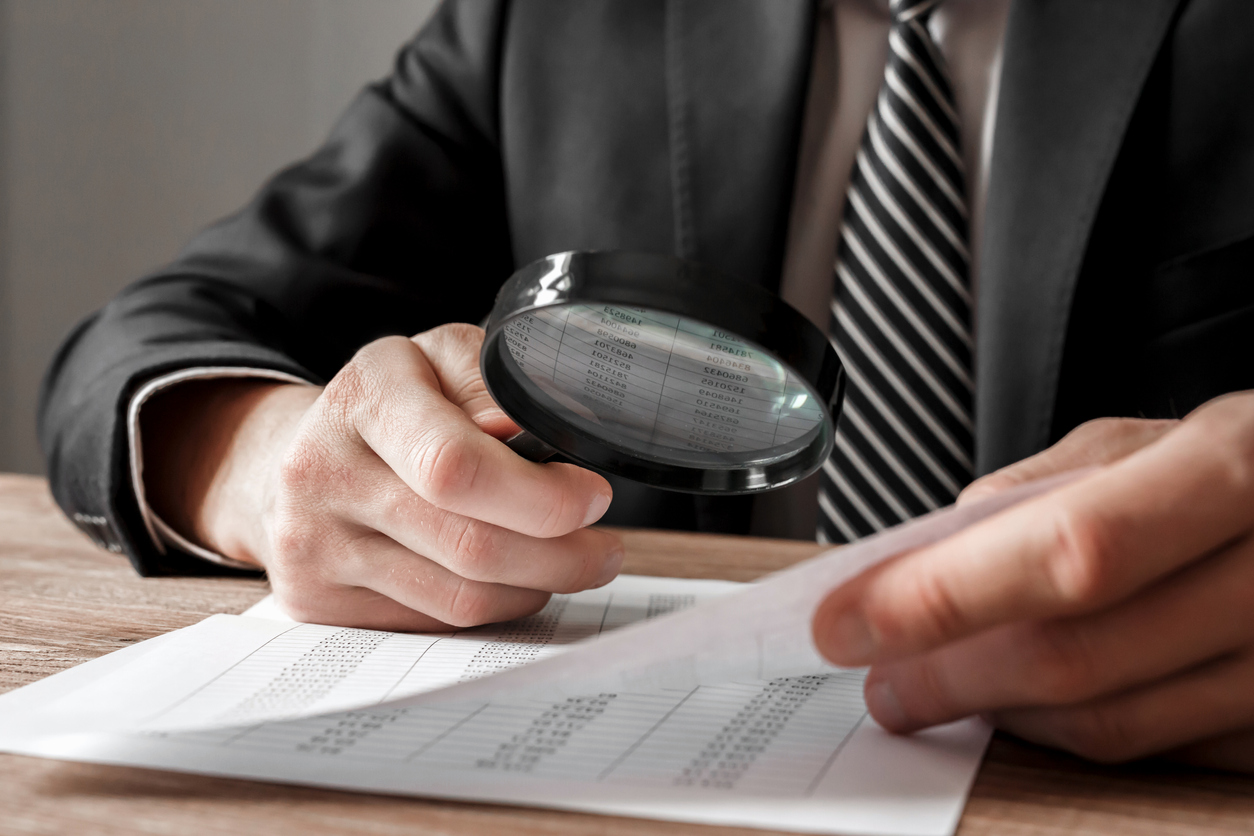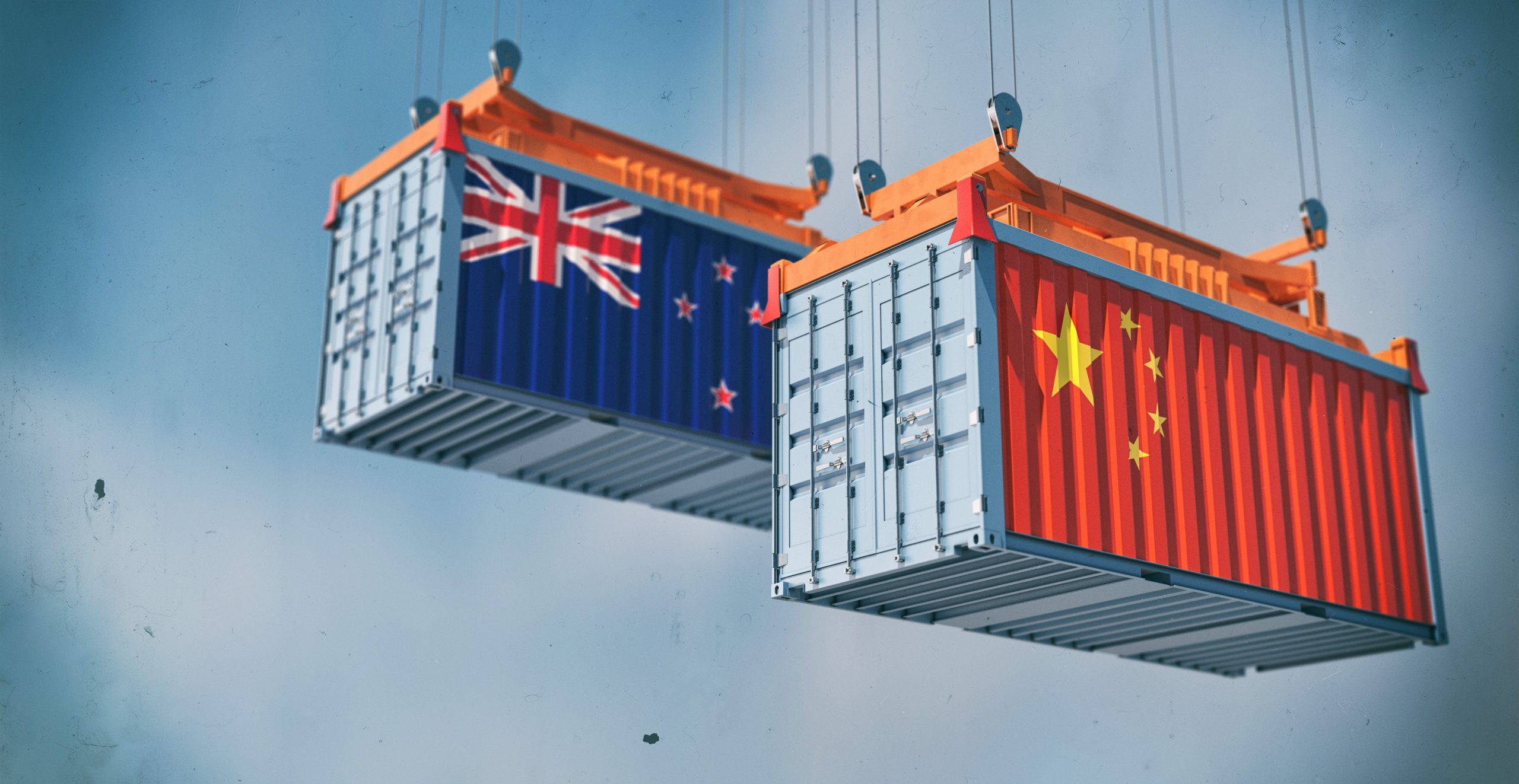Unveiling the Benefits of Carrying Out Due Diligence Checks on Companies in Nigeria
Unveiling the Benefits of Carrying Out Due Diligence Checks on Companies in Nigeria
Are you considering doing business in Nigeria? Before diving into any new venture, it’s crucial to equip yourself with the right knowledge and tools. Carrying out due diligence checks on companies is an essential step that cannot be overlooked. In this blog post, we will unravel the numerous benefits of conducting thorough due diligence checks on companies in Nigeria. From safeguarding your investment to avoiding potential risks, join us as we delve into the world of due diligence and discover how it can give you a competitive edge in the Nigerian market. Get ready to make informed decisions and unlock opportunities like never before!
Introduction to Due Diligence Checks
Introduction to Due Diligence Checks
Due diligence checks are an essential part of any business transaction, especially when it comes to investing in or partnering with companies in Nigeria. In simple terms, due diligence means conducting a thorough investigation and assessment of a company before entering into any type of agreement or contract.
This process involves gathering and analyzing information about the company’s financial status, legal standing, operations, and overall reputation. It is crucial for businesses to carry out these checks to ensure that they are making informed decisions and minimizing potential risks.
In this section, we will delve deeper into the concept of due diligence checks and understand why they are necessary when dealing with companies in Nigeria.
Why Are Due Diligence Checks Important?
The primary purpose of due diligence checks is to obtain a complete picture of the company you intend to do business with. It helps identify any red flags or potential issues that may affect the success of your partnership or investment.
Nigeria has seen significant economic growth over the years, attracting foreign investors and entrepreneurs looking to tap into its vast market potential. However, doing business in Nigeria also comes with its fair share of challenges, such as corruption, political instability, and unreliable infrastructure.
Conducting due diligence checks can help mitigate these risks by providing you with vital information about the company’s background and operations. This way, you can make well-informed decisions based on facts rather than assumptions or promises.
Importance of Due Diligence Checks for Companies in Nigeria
Due diligence checks are an essential aspect of any business operation, especially for companies in Nigeria. It is a thorough investigation and assessment of a company’s financial, legal, and operational aspects before engaging in any business relationship or transaction. This process helps businesses to identify potential risks and make well-informed decisions.
In the Nigerian business environment, due diligence checks have become increasingly important due to the country’s complex regulatory framework and high-risk factors such as corruption, fraud, and political instability. Companies that fail to carry out proper due diligence may face severe consequences that can negatively impact their reputation and financial stability.
One of the primary reasons why due diligence checks are crucial for companies in Nigeria is to comply with regulatory requirements. The country has several laws and regulations governing business operations, including the Companies and Allied Matters Act (CAMA) 2020, Foreign Exchange Monitoring and Miscellaneous Provisions Act (FEMM), Economic Financial Crime Commission (EFCC) Act, among others. These laws require companies to conduct background checks on their potential partners or clients before entering into any contract or agreement.
Furthermore, conducting due diligence assists companies in identifying any red flags that may be associated with a particular individual or organization. This could include previous cases of fraud or unethical practices that could potentially harm the company’s interests. By gathering relevant information through due diligence checks, businesses can avoid getting involved with individuals or entities with questionable backgrounds.
Understanding the Nigerian Business Landscape
The Nigerian business landscape is a dynamic and rapidly growing environment, making it an attractive destination for both local and foreign investors. With its large population, abundant natural resources, and strategic geographical location, Nigeria has become a hub for various industries such as agriculture, oil and gas, manufacturing, telecommunications, and more.
However, before investing in any company in Nigeria, it is crucial to gain a thorough understanding of the country’s business landscape. This knowledge will not only help you make informed decisions but also protect your investments from potential risks.
One key aspect of understanding the Nigerian business landscape is being aware of the legal framework that governs businesses in the country. Nigeria operates under a federal system with 36 states and one federal capital territory. Each state has its laws governing businesses within its jurisdiction. Therefore, it is essential to familiarize yourself with these laws to ensure compliance when carrying out due diligence on companies.
Another critical factor to consider is the economic conditions of Nigeria. While the country has recorded steady economic growth over the years, there are still some challenges that investors need to be aware of. These include fluctuations in currency exchange rates, high inflation rates, corruption issues at different levels of government and bureaucracy which can affect ease of doing business.
Additionally, understanding the cultural norms and practices in Nigeria can significantly impact how you conduct business in the country. Relationships are highly valued in Nigerian culture; therefore building trust through personal connections is crucial for successful partnerships or transactions.
Types of Due Diligence Checks
Due diligence checks are an essential part of conducting business, especially when dealing with companies in Nigeria. These checks help to ensure that you are making informed decisions while minimizing risks and potential losses. There are various types of due diligence checks that can be carried out on companies in Nigeria, each serving a specific purpose. In this section, we will discuss the different types of due diligence checks that one should consider before entering into any business arrangement or transaction with a company in Nigeria.
1. Financial Due Diligence:
This type of due diligence is focused on analyzing the financial health and stability of a company. It involves going through the company’s financial records, including balance sheets, income statements, cash flow statements, and tax returns. The aim is to assess the company’s profitability, liquidity, debt obligations, and overall financial performance.
2. Legal Due Diligence:
Legal due diligence involves evaluating the legal aspects of a company’s operations to identify any potential legal risks or liabilities. This includes reviewing contracts, licenses and permits, litigation history, intellectual property rights protection measures, regulatory compliance issues among others.
3. Operational Due Diligence:
Operational due diligence involves assessing how well a company is run and its ability to deliver on its promises and meet targets effectively. It looks at factors such as management structure and capabilities, employee relations and retention rates, supply chain efficiency and robustness among others.
Steps to Conducting a Successful Due Diligence Check
Due diligence is an essential process that involves investigating and assessing the financial, legal, and operational aspects of a company before making any business decisions. In the context of Nigeria, where business practices can be complex and regulations may vary between states, conducting a thorough due diligence check is crucial for ensuring the success of any business venture.
To help you navigate this process effectively, here are some steps to follow when conducting a successful due diligence check on companies in Nigeria:
1. Determine your objectives: The first step in conducting due diligence is to clearly define your objectives. What do you hope to achieve by carrying out this investigation? Are you looking to invest in or partner with the company? Or are you considering acquiring it? Having a clear understanding of your goals will guide your research and help you focus on relevant information.
2. Verify registration and legal status: One of the primary reasons for conducting due diligence is to ensure that the company you are considering has proper legal standing. In Nigeria, businesses must register with the Corporate Affairs Commission (CAC) before commencing operations. Therefore, it is crucial to verify if the company is registered with CAC and if its registration documents are up-to-date.
3. Check financial records: A thorough examination of a company’s financial records can provide valuable insights into its performance and stability. Request copies of audited financial statements for at least three years to assess revenue trends, profitability, cash flow management, debt levels, and potential liabilities such as tax obligations or pending lawsuits.
– Gathering Information
Gathering information is a crucial step in any due diligence process, as it allows you to gain a comprehensive understanding of the company you are investigating. In this section, we will discuss the various sources and methods that can be used to gather information on companies in Nigeria.
1. Company Documents:
The first and most obvious source of information is the company’s own documents. These include financial statements, annual reports, articles of association, and other legal documents such as licenses and permits. These documents can provide valuable insights into the company’s operations, financial health, management structure, and ownership.
2. Public Records:
In Nigeria, certain public records are available for anyone to access and can be a useful source of information during due diligence checks. This includes records from government agencies such as the Corporate Affairs Commission (CAC) where companies register their business entities. These records often contain details about the directors, shareholders, registered address, and date of incorporation.
3. Media Sources:
Local newspapers and online news outlets can also be valuable sources of information when conducting due diligence checks on companies in Nigeria. They may have published articles or reports about the company’s activities or any legal issues it may have faced in the past.
4. Professional Networks:
Leveraging your professional networks is another effective way to gather information on a company in Nigeria. You can reach out to individuals who have worked with or for the company before or who may have knowledge about its operations within your network.
– Analyzing Financial Records
Analyzing financial records is a crucial aspect of due diligence checks on companies in Nigeria. It involves a thorough examination of the company’s financial statements, tax returns, and other relevant financial documents to assess its financial health and stability. This process provides valuable insights into the company’s operations, profitability, and potential risks.
There are several reasons why analyzing financial records is an essential step in due diligence checks for companies in Nigeria. Firstly, it allows potential investors or business partners to verify the accuracy and reliability of the company’s financial information. In a country like Nigeria where cases of fraud and mismanagement are prevalent, conducting a thorough analysis of financial records can help identify any red flags or discrepancies in the company’s financial statements.
Secondly, analyzing financial records also helps in evaluating the company’s performance over time. By examining past years’ financial data, investors can gain an understanding of how the company has been performing financially and make informed decisions about its future prospects. This analysis can also reveal any inconsistencies or irregularities that may indicate fraudulent activities or poor management practices.
Another benefit of analyzing financial records is that it provides insight into the company’s cash flow and liquidity position. Cash flow is critical for businesses as it reflects their ability to generate sufficient funds to cover operational expenses and invest in growth opportunities. A thorough review of a company’s cash flow statement can highlight any potential cash flow issues or unsustainable spending patterns that could affect its long-term viability.
– Verifying Legal Documents and Certificates
In order to ensure that you are dealing with a reputable and legitimate company in Nigeria, it is crucial to verify the legal documents and certificates provided by the company. This step is an essential part of due diligence checks as it helps to confirm the authenticity of the company’s operations and compliance with legal requirements.
The first document that should be verified is the Certificate of Incorporation, which is issued by the Corporate Affairs Commission (CAC). This document serves as proof that the company has been registered and legally recognized by the government. It also contains important information such as the company’s name, address, directors’ names, and share capital. Verifying this document will help you confirm if the company is legitimate and operating within its registered scope.
Another important document to verify is the Company’s Memorandum and Articles of Association. This document outlines the rules and regulations governing how the company operates. It includes details on shareholders’ rights, responsibilities of directors, voting procedures, among others. By verifying this document, you can ensure that the company follows proper corporate governance practices.
Additionally, companies in Nigeria are required to obtain various licenses and permits depending on their industry or business activities. These may include business permits from local government authorities or specialized licenses from regulatory bodies such as NAFDAC (National Agency for Food and Drug Administration Control) for companies involved in food or drug production. Ensuring that these licenses are valid will give you confidence in dealing with a trustworthy and compliant organization.
– Investigating Reputation and Background
Investigating reputation and background is a crucial step in the due diligence process when conducting business transactions with companies in Nigeria. It involves gathering information about the company’s past performance, financial stability, and overall reputation within the industry and market.
One of the main reasons for carrying out this investigation is to ensure that you are entering into a partnership or deal with a reputable and trustworthy company. This is particularly important in Nigeria, where there have been cases of fraudulent activities and corruption in business dealings.
To begin with, it is essential to research the company’s history and track record. This includes looking into their previous projects, clients, and any legal disputes or controversies they may have been involved in. It can give you an idea of their level of experience, credibility, and integrity as a business entity.
Moreover, conducting a thorough background check can reveal any red flags that indicate potential risks or issues with the company. For instance, if there are multiple changes in ownership or management within a short period of time, it could be a sign of instability or internal conflicts within the organization.
In addition to researching the company itself, it is equally important to investigate its key executives and shareholders. These individuals play a significant role in shaping the company’s culture and decision-making processes. Therefore, it is crucial to look into their backgrounds to ensure they do not have any questionable affiliations or past criminal activities that could reflect negatively on your business dealings.
– Assessing Risk Factors
Assessing risk factors is a crucial step in conducting due diligence checks on companies in Nigeria. It allows individuals or businesses to identify potential risks and evaluate the overall financial health of the company. This section will discuss the key elements to consider when assessing risk factors and why it is essential for any due diligence process.
1. Financial Risk:
One of the essential factors to assess when conducting due diligence checks is financial risk. This refers to the likelihood of a company facing financial difficulties or going bankrupt. To evaluate this, it is vital to review the company’s financial statements, including balance sheets, income statements, and cash flow statements. These documents provide insights into the company’s profitability, liquidity, and debt levels. Additionally, analyzing the company’s credit rating can also give an indication of its financial stability.
2. Legal Risk:
Legal risk refers to any potential legal issues that a company may face in terms of compliance with laws and regulations. This includes but is not limited to labor laws, tax laws, environmental regulations, and contract agreements. Conducting a legal risk assessment ensures that there are no ongoing litigations against the company or any past violations that could lead to future liabilities.
3. Operational Risk:
Operational risk evaluates how well a company manages its day-to-day operations and processes. It involves identifying potential risks such as supply chain disruptions, equipment failure, human error, or cybersecurity threats that could impact the company’s operations negatively.
Benefits of Carrying Out Due Diligence Checks
Carrying out due diligence checks on companies in Nigeria is a crucial step for individuals and businesses seeking to invest or collaborate with a company. Due diligence checks involve conducting a thorough investigation and analysis of a company’s financial, legal, operational, and reputational background. In this section, we will discuss the benefits of carrying out due diligence checks on companies in Nigeria.
1. Identifies potential risks: One of the primary benefits of conducting due diligence checks is that it helps identify potential risks associated with the company. This can include financial risks such as outstanding debts and pending lawsuits, as well as operational risks like poor management practices or inadequate internal controls. By uncovering these risks early on, individuals and businesses can make informed decisions about whether to proceed with the investment or collaboration.
2. Ensures compliance: Companies in Nigeria are subject to various laws and regulations that they must comply with to operate legally. Conducting due diligence checks can help ensure that the company is compliant with all applicable laws and regulations. This not only protects your investment but also safeguards your reputation by avoiding any association with non-compliant companies.
3. Verifies authenticity: Unfortunately, there are instances where fraudulent companies exist in Nigeria, impersonating legitimate ones to scam unsuspecting investors or partners. Carrying out due diligence checks can help verify the authenticity of a company by confirming its registration status, ownership structure, and other relevant details.








Comments are closed.